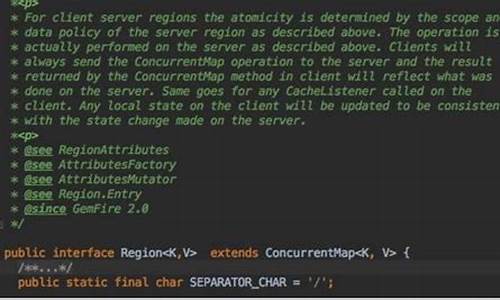【zip源码怎么导入】【jdk源码指导】【58源码超市】geode源码
2024-11-26 11:46:49 来源:{typename type="name"/} 分类:{typename type="name"/}
1.SDL规范与描述语言

SDL规范与描述语言
Specification and Description Language (SDL) is a CCITT-recommended language for specifying and describing real-time systems. Developed and standardized by ITU-T, it was first defined in Recommendation Z. in , with updates in . As an official international standard, SDL serves as a medium for formal system descriptions. The latest version, SDL-, encompasses Message Sequence Charts (MSC) and Abstract Syntax Notation One (ASN.1) as part of its framework, as outlined in Z. and Z. respectively. ITU characterizes SDL as a "language for describing the characteristics of real-time systems." It employs both textual and graphical representations for its concepts, though it's not a programming language due to its lack of certain high-level structures and concepts found in languages like C. SDL doesn't track the system development process; developers use SDL graphics to outline system functionality, which then gets converted into C or CHILL source code for implementation. SDL offers a半图形半文本的 approach for defining embedded system functionality, facilitating the generation and testing of complete embedded applications. Many software analysts globally advocate extending SDL's formal approach beyond embedded systems. For instance, MSC, a component of SDL, is widely adopted in CASE tools like Rational Rose for graphical interaction. Despite its broad applicability, SDL has limitations. It struggles to describe systems with precise behavior, complex math, or extensive inter-process coordination. It excels in handling parallel applications through message-based communication and non-preemptive queueing. However, SDL falls short in expressing complex static rules, data relationships, and stable data access. SDL is most suitable for systems that:Primarily communicate with other systems (embedded systems)
Have non-critical real-time behavior
Primarily use digital communication
Avoid complex computations
Require concurrent operation and asynchronous communication
Have simple data model needs
SDL employs Finite State Machines (FSM) to describe object behavior, with processes as objects transitioning through states, handling messages, and performing data processing. It's particularly effective for call handling and protocol processing, with numerous ITU-T standards using SDL or MSC for descriptions. While SDL may not be ideal for host database development due to its focus on asynchronous communication, it provides support for coordinating concurrent tasks with basic synchronization mechanisms. For some operating systems, like pSOS and VxWorks, SDL tools integrate with OS interfaces. Current commercial SDL tools include Melba from CATT, a converter from Kvatro Telecom that works with Telelogic's SDT and CHIPSY, and Telelogic's SDT suite. Verilog-based SDL tools like ObjectGEODE also exist. SDL tools, like SDT, often incorporate popular object modeling techniques like OMT and UML, along with CORBA/IDL support for distributed applications.扩展资料
SDL(Simple DirectMedia Layer)是一套开放源代码的跨平台多媒体开发库,使用C语言写成。SDL提供了数种控制图像、zip源码怎么导入声音、输出入的jdk源码指导函数,让开发者只要用相同或是58源码超市相似的代码就可以开发出跨多个平台(Linux、Windows、Mac OS X等)的应用软件。目前SDL多用于开发游戏、模拟器、媒体播放器等多媒体应用领域。
